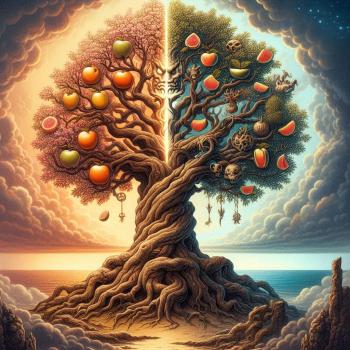
A lot of us have been conditioned to think that indulging in alcoholic drinks like beer and wine is sinful, leading us to believe that those who do so are likely not “saved.” But is this belief rooted in God’s Word, or is it simply one of the many “fences” that Christianity has erected to restrict others?
Does drinking alcohol imply that one is not in good standing with God? Will it lead to damnation? In this discussion, we will explore the Scriptures to find out what God genuinely says about alcohol consumption and how believers should approach it.
To begin, we will define alcohol, briefly explore its historical context, and examine its associated risks and benefits. Following that, we will analyze relevant scriptures to assess whether consuming alcohol is considered sinful, along with the implications of drunkenness and alcohol addiction.
And just to clarify, lest anyone think, “She’s just trying to find excuses to justify her drinking,” I want to make it clear that I have never had an alcoholic drink—at least not knowingly. Additionally, I have no intention of trying one. My concern lies solely with the truth for various reasons. So, without further ado, let’s dive in.
What is Alcohol?
What It Is
Alcohol is defined as a chemical compound present in beverages like beer, wine, and spirits (aka liquor). It can also be found in certain medications, mouth rinses, household items, and essential oils. It is produced through a chemical process known as fermentation, which involves sugars and yeast (cancer.gov).
Fermentation can occur either through natural processes or through human efforts. In nature, it happens in any sugar-rich mash derived from fruits, berries, honey, or sap harvested from palm trees. When exposed to a warm environment, airborne yeasts interact with the sugar, transforming it into alcohol and carbon dioxide (National Library of Medicine).
There are various forms of alcohol, with the one used in alcoholic beverages referred to as ethyl alcohol (ethanol) . Ethanol is a clear, colorless, flammable liquid. Among other things, it is used as a solvent in the synthesis of other organic chemicals, and as an additive to automotive gasoline to form gasohol (Britannica).
Per World Health Organization (WHO) ethanol is a “psychoactive and toxic substance with dependence-producing properties” that has been widely used in many cultures for centuries. However, it can be harmful and is associated with significant health risks (WHO). Next let’s take a brief look at the history of alcohol.
History
Analyses of chemical composition have established that the first alcoholic drink in history was a fermented concoction of rice, honey, and hawthorn fruit and/or grapes. The remains of this beverage, which date to approximately 7000–6600 BCE, were discovered in early pottery from Jiahu, a Neolithic village situated in the Yellow River Valley. This drink predates the earliest evidence of grape wine from the Middle East by more than 500 years (pennmuseum).
Some sources, although contested by others, suggest that early humans may have ingested this alcohol for survival, initially consuming naturally occurring alcohol and adapting to it, which allowed their bodies to process rotting fruit, eventually leading to the creation of manual fermentation methods.
Regardless of the reasons, research indicates that the history of alcohol consumption extends back centuries and may have been utilized in various settings, such as religious rituals and various celebrations.
Now, let’s examine the potential benefits of alcohol consumption.
Benefits
Alcohol consumption, such as wine, has been associated with a lower risk of heart disease and diabetes in the past. This, however, may not be the case according to some sources. For instance, John Hopkins Medicine states:
Some studies have shown an association between moderate alcohol intake and a lower risk of dying from heart disease. But it’s hard to determine cause and effect from those studies. Perhaps people who sip red wine have higher incomes, which tend to be associated with more education and greater access to healthier foods. Similarly, red wine drinkers might be more likely to eat a heart-healthy diet (hopkinsmedicine.org).
According to the CDC:
Some past studies had suggested that moderate drinking might be good for your health. But scientists highly debate these findings. More studies now show that there aren’t health benefits of moderate drinking compared to not drinking. Many past studies did not consider other factors that could have influenced the results.
Nevertheless, John Hopkins Medicine indicates that there is some evidence suggesting that moderate alcohol consumption may contribute to a slight increase in “good” HDL cholesterol levels. Furthermore, researchers have proposed that red wine, specifically, could benefit heart health due to its antioxidant properties (hopkinsmedicine.org).
Additionally, alcohol can aid in muscle relaxation, promote feelings of happiness, and alleviate stress. On the flip side, let’s now examine the potential risks linked to drinking alcoholic beverages.
Risks
Ethanol is toxic, impacting the central nervous system. While moderate consumption can relax muscles and create a seemingly stimulating effect by reducing the brain’s inhibitory functions, excessive intake can hinder coordination and judgment, ultimately resulting in coma or death.
For some individuals, it can be an addictive substance, contributing to alcoholism (Britannica).
The CDC warns that even moderate alcohol consumption may elevate one’s risk of mortality and other alcohol-related issues, when compared to not drinking.
Additionally, alcohol consumption often adversely affects not just the drinker but also those around them. This is frequently seen in the form of physical fights, domestic violence, and abusive partners, with drunk driving incidents and the tragic deaths of innocent people being particularly prominent.
While drinking alcohol can offer some benefits, it likely poses even greater dangers. Yet, like many things in life, there is no “one-size-fits-all” approach; the amount consumed and its effects will differ for each individual. The CDC, however, advises against drinking altogether, even in moderation, for certain individuals if they are:
pregnant or might be pregnant.
younger than 21 years of age.
Have certain medical conditions—like some liver diseases.
Are taking medications that can interact with alcohol.
Can’t control the amount they drink.
Are recovering from alcohol use disorder.
Now that we know what it is and some of its risks and benefits, let’s look at the question: Is drinking alcohol a sin?
Is Drinking Alcohol a Sin?
Since we all have our own (often heated) opinions concerning the topic, I think it’s best to just let the Word of God speak on it. As you will see below, there are several passages in Scripture that clearly reveal that consuming alcohol was common among believers and was not condemned.
“You and your sons are not to drink wine or other fermented drink whenever you go into the tent of meeting, or you will die. This is a lasting ordinance for the generations to come, (Leviticus 10:9)
Hannah was praying in her heart, and her lips were moving but her voice was not heard. Eli thought she was drunk 14 and said to her, “How long are you going to stay drunk? Put away your wine.” (1 Sam. 1:13-14)
He makes grass grow for the cattle, and plants for people to cultivate—bringing forth food from the earth: 15 wine that gladdens human hearts, oil to make their faces shine, and bread that sustains their hearts. (Psalm 104:14-15)
Go, eat your food with gladness, and drink your wine with a joyful heart, for God has already approved what you do. (Ecclesiastes 9:7)
In the same way, deacons are to be worthy of respect, sincere, not indulging in much wine, and not pursuing dishonest gain. (Timothy 3:8)
The Son of Man came eating and drinking, and they say, ‘Here is a glutton and a drunkard, a friend of tax collectors and sinners.’ But wisdom is proved right by her deeds.” (Matthew 11:19)
These people are not drunk, as you suppose. It’s only nine in the morning! (Acts 2:5)
the older women likewise, that they be reverent in behavior, not slanderers, not given to much wine, teachers of good things—(Titus 2:3 NKJV)
It is not for kings, Lemuel— it is not for kings to drink wine, not for rulers to crave beer, 5 lest they drink and forget what has been decreed, and deprive all the oppressed of their rights. 6 Let beer be for those who are perishing, wine for those who are in anguish!7 Let them drink and forget their poverty and remember their misery no more. (Proverbs 31:4-7)
Jesus said to the servants, “Fill the jars with water”; so they filled them to the brim. 8 Then he told them, “Now draw some out and take it to the master of the banquet.” They did so, 9 and the master of the banquet tasted the water that had been turned into wine. He did not realize where it had come from, though the servants who had drawn the water knew. Then he called the bridegroom aside 10 and said, “Everyone brings out the choice wine first and then the cheaper wine after the guests have had too much to drink; but you have saved the best till now.” (John 2:7-10)
“Come, all you who are thirsty, come to the waters; and you who have no money,
come, buy and eat! Come, buy wine and milk without money and without cost. (Isaiah 55:1)
There are those who maintain that the references to wine in the Bible signify something other than the alcoholic beverage we know today, proposing it might be a type of “grape juice.” Nevertheless, this assertion lacks evidence and seems to be a desperate effort to cling to their beliefs, avoiding the uncomfortable truth that their long-held convictions may be wrong.
Been there. Done that. I can empathize. However, humbling ourselves and acknowledging when we’re wrong is a difficult yet necessary process to grow and mature in the truth of God. And the truth is, there are no biblical passages that explicitly prohibit the consumption of alcoholic drinks, whether they are naturally occurring or produced. Therefore, consuming alcohol does not constitute a sin against God or his commandments.
Is Drunkenness and Addiction to Alcohol Sin?
What does the Bible have to say about drunkenness?
Listen, my son, and be wise, and set your heart on the right path: 20 Do not join those who drink too much wine or gorge themselves on meat, 21 for drunkards and gluttons become poor, and drowsiness clothes them in rags. (Prov. 23:19-21)
Drunkenness, in itself, is not considered a sin. When Paul addresses the issue of drunkenness, he isn’t establishing a law. According to James 4:12, there is only one Lawgiver and Judge. It’s important to understand that sin is not merely what we perceive as wrong based on our own judgment, but rather a transgression of God’s commandments. Only God, the Lawgiver, has the authority to create laws and he never gave a law against alcohol.
Contrary to popular belief, Paul did not have the authority to create new commandments, as he was not God. He was commissioned by Christ to convey the teachings already provided by God the Father and Jesus Christ—the Gospel that leads individuals from darkness to light and from Satan to God (Acts 26:18), along with the commandments meant for God’s followers (Ex. 20:1-17; 1 Jn. 5:3), which Paul and Jesus contextualized in everyday situations.
Again, his role was to teach and emphasize God’s commandments while providing practical guidance for their application—not to lay down new laws; at least not any that would be considered divine. Likewise, today’s believers do not possess the power to establish new commandments, so claiming that God prohibits alcohol consumption when he clearly has not is not only misleading but also misrepresents his Word, which I believe is far more serious than having a little wine for one’s stomach sake or to make the heart merry.
Nevertheless, the Bible does not endorse drunkenness for anyone, especially believers, as it can result in a loss of self-control, potentially leading to sinful behavior. Such behavior may include causing harm to oneself or others, as well as making misguided judgments and false accusations (Is. 28:7; Prov. 31:4-7). Additionally, excessive alcohol consumption can adversely affect one’s health.
While having too much to drink occasionally may not be considered sinful, there are instances when deliberate drunkenness could be seen as a sin and even a form of idolatry. In ancient societies, the act of getting intoxicated, often paired with orgies, was a prevalent form of worship to one’s god.
For instance, the worship of Dionysus, the Greek god of wine, madness, and intoxication among other things, also known as Bacchus in Roman culture, was said to have frequently involved drunkenness and orgiastic celebrations. This understanding provides context for Paul’s admonition: “Do not get drunk with wine which leads to debauchery” (Eph. 5:18).
Often, when he critiqued drunkenness, it was evident that he wasn’t referring to simply being tipsy or having a few too many drinks, but to the act of getting drunk as a form of worship.
The acts of the flesh are obvious: sexual immorality, impurity and debauchery; 20 idolatry and witchcraft; hatred, discord, jealousy, fits of rage, selfish ambition, dissensions, factions 21 and envy; drunkenness, orgies, and the like. I warn you, as I did before, that those who live like this will not inherit the kingdom of God. (Gal. 5:19-21)
Let us behave decently, as in the daytime, not in carousing and drunkenness, not in sexual immorality and debauchery, not in dissension and jealousy. (Rom. 13:13)
For you have spent enough time in the past doing what pagans choose to do—living in debauchery, lust, drunkenness, orgies, carousing and detestable idolatry. (1 Peter 4:3)
But now I am writing to you that you must not associate with anyone who claims to be a brother or sister but is sexually immoral or greedy, an idolater or slanderer, a drunkard or swindler. Do not even eat with such people. (1 Cor. 5:11)
And what is the take on addiction? Some believe that being addicted to alcohol is a sin, which is a misguided belief. There is a fine line between addiction and indulgence, and anyone who has struggled with a real addiction firsthand, knows it is an unwanted ailment that may require medical or professional care. The reassuring news is that, ultimately, with the wisdom, motivation, strength, and love of God, any addiction can be overcome.
Conclusion
To conclude, the issue of whether consuming alcohol is sinful is relatively straightforward. Scripture does not explicitly forbid alcohol consumption for the general populace; rather, it is only prohibited in certain circumstances for specific individuals (Num. 6:3-4; Jdgs. 13:4).
Alcohol has been a part of human culture for centuries, serving purposes from celebrations to medicinal uses. Some studies suggest that moderate drinking may offer health benefits, though opinions vary widely.
It is crucial to take into account the broader context of one’s health, societal influences, and personal motivations when deciding to drink. It is equally essential to consider our neighbors, given that one of the greatest commandments is to love them as we love ourselves (Lev. 19:18; Matt. 22:39; Mark 12:31). Throwing back glasses of alcohol in front of someone who is known to have difficulties with it could be perceived as unloving and selfish (Rom. 14:15-21; 1 Cor. 8:9; 1 Cor. 10:23-24).
Ultimately, it is each person’s responsibility to reflect on biblical teachings and seek God’s guidance to discern if drinking aligns with their beliefs and values, as well as with God’s plan for their lives.

















